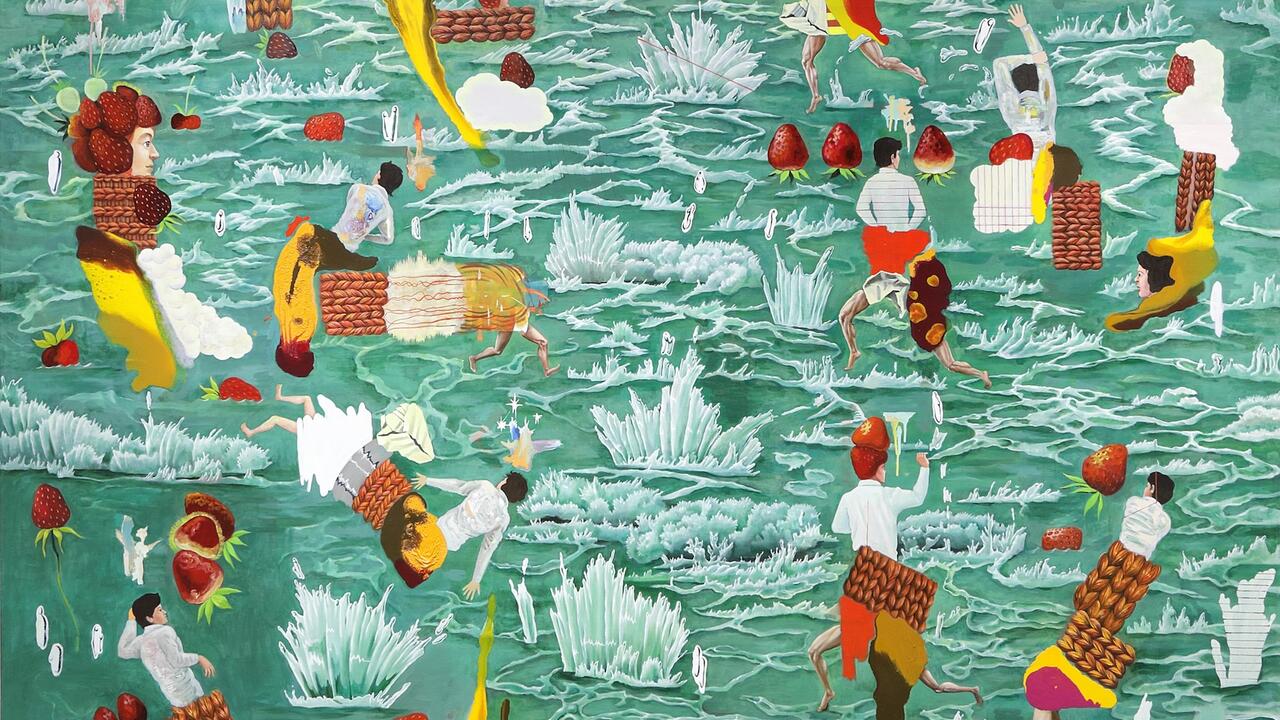Limits of Knowing
Martin-Gropius-Bau, Berlin, Germany
Martin-Gropius-Bau, Berlin, Germany

In disagreement with the epic theatre of Bertolt Brecht, the writer and theorist Antonin Artaud defended the emancipatory potential of immersive theatre to heal us, albeit painfully, by first disturbing our subconscious. Similarly putting the spectator’s body at the centre of the performance, and replacing spoken language with something multi-sensory experience, the ‘Limits of Knowing’ is a month-long set of exhibitions and programs at the Martin-Gropius-Bau organised with the Berliner Festspiele.
What happens when the stage extends into virtual space? This is one question posed by works such as Rhizomat VR (2017), a 360° film by artist Mona el Gammal, featuring an ultra-sanitized, geographically indistinct world in which the Institut für Methode, a global private company, suppresses its population with mind-control tests and devices – before the VR cuts mid-way to a somewhat predictable voice-over of an underground resistance group. The ‘immersion’ experienced in Gammal’s work, as with several others in the show, is representational but doesn’t allow for audience intervention. The effect is more like reading a book than having a vivid dream or playing a video game, which belies the suspicion that VR headsets alone add much to experience.

Other works, too, focus less on ‘unknowability’ than on amplifying ordinary sense experiences, suggesting that the real limits concern not what we can know but how. While Gammal’s Rhizomat VR treats sight as primary, Rainer Kohlberger and William Basinski offer a new approach to aural immersion as part of their ‘Arrival of Time’ series. In On Time Out of Time (2017), an eight-channel soundscape manipulates data detecting gravitational waves from Caltech’s Laser Interferometer Gravitational-Wave Observatory, while we watch giant stroboscopic images on screen. Chris Salter + TeZ’s Haptic Field (V2.0) (2016/17) fits visitors with haptic sensors, vibrating devices and sight-obscuring glasses before they navigate a four-room series of pulsing lights and oneiric sounds. In Lundahl & Seitl’s Unknown Cloud on its Way to Berlin (2017), visitors can download an app that tracks the arrival of an electromagnetic cloud; donning headphones to hear it, they find themselves joining a community of fellow listeners on Tempelhofer Feld, Berlin, and in Assam, India.

The use of such innovative technology suggests that, if our knowledge is limited, it’s often the result of trying to capture new phenomena using older means. Yet, the show’s most interesting work – and the one that best highlights its own immersive capabilities – offers a more subtle way of thinking about the limits of knowledge. Rimini Protokoll’s Nachlass (Estate, 2017) centres on death as the ultimate moment where knowledge breaks down, and examines our attempts to control the traces we leave behind for others. The eight mini-chambers that comprise the work are each constructed to convey an absent person’s farewell address. The rooms themselves are varied: in one, we’re in a cellar bleating with West Coast punk, watching a video of a 40-something Swiss base jumper preparing for a trip; in another, we’re shoeless on a patterned carpet eating Turkish Delight while listening to a Zurich-based Muslim making preparations for his funeral in Istanbul. Moving through the series of rooms, it is difficult not to be transfixed, but I found myself vacillating between thinking about the people whose goodbyes I am participating in (at least one of whom, we learn, died between the work’s creation and its exhibition) and my own mortality.
In ‘Limits of Knowing’, the central concepts of unknowability and immersion appear only tenuously connected. If immersion has radical potential, as Artaud thought it did, it requires more sound, more touch, less sight; sight, after all, has long been the most epistemically privileged sense. Instead of amplifying our normal ways of sensing, immersion ought to disturb our entrenched ideas about what we see and know.
Main image: Mona el Gammal, RHIZOMAT VR, 2017, ‘Limits of Knowing’, Martin Gropius Bau. Courtesy: Martin Gropius Bau, Berlin; photograph: © Mona el Gammal
























